Alexandra Palt is the Chief Corporate Responsibility Officer at L’Oréal and Executive Vice-President of the Fondation L’Oréal. She spoke to Longevity’s publishing director, Gisèle Wertheim Aymés, in Kigali, Rwanda, about the recent For Women in Science Young Talents Awards 2021 and why science needs more women.
The For Women in Science Awards were launched 23 years ago. In association with UNESCO, the programme celebrates excellence by women in science. The programme has been gaining momentum over the years, and, to date, three Nobel Prize-winners have been selected from the For Women in Science Awards laureates.
Alexandra Palt and For Women in Science Awards
Palt explains that the idea for the awards grew from the fact that, although there were female scientists, they were invisible. Twenty-three years later, some of the numbers have changed.
“Our objective is to highlight female scientific excellence and to make these women visible. We want to make them part of the discussion and empower them. We also want to equip them with soft skills that may accelerate their careers.”
For a long time, many thought women were just small men. Far too many research protocols were unfortunately designed in this manner. Indeed, there have been instances where the FDA had to cancel the authorization of a drug, as it had been tested only on men.
Equal representation for men and women in science
Regulators have been calling for equal representation of men and women in health research for nearly 25 years. This underrepresentation for example, has a direct impact on drug choices. All drugs pose some risk to those who take them. But women face more danger than men and have a lower likelihood that a therapy will work.
According to a study in Nature, “Between 2004 and 2013, for instance, women in the United States suffered more than 2 million drug-related adverse events, compared with just 1.3 million for men, as reported by the US Food and Drug Administration (FDA).”
So why are women still underrepresented?
There are many reasons. Researchers and policymakers are working on several fronts to remedy this, but there is still resistance and progress is slow. Those who are pushing for more women to be included in research argue that it should not be viewed as an inconvenience, but as an opportunity for better science. For one, you could miss important discoveries if you don’t include both genders, Research has also shown that productivity rises when there is gender equality in a team.
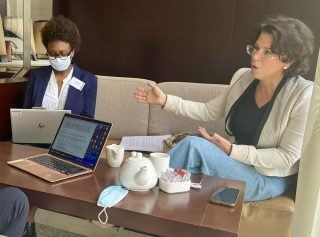
Alexandra Palt
A leaky pipeline
Some of these difficulties are inherent in the world of scientific research, not least of which in sub-Saharan Africa. These include a lack of financial and technical resources to carry out research, while others are specific to being a woman: social expectations that make it particularly difficult to find a balance between work and the role of a wife or mother.
A lack of role models
Finally, the lack of role models and, sometimes, the reluctance of some research directors to employ women, are additional challenges they need to overcome. Palt says “There are a huge number of issues that take women out of science careers. When you look at university entries, you have the same number of women, but when you look into research careers, then the research pipeline gets leaky. This is very often around the thesis, so that is one of the reasons why this organization supports the thesis process.”
“We see positive change everywhere around the world, and we try to make it easier for women to succeed. There are different kinds of obstacles for women. Women are constantly being bombarded with questions of when they plan to have children, as well as their work-life balance.”
“Not only is the science culture very hierarchical, but there are also a lot of harassment issues that are not dealt with openly enough at the moment.”
Different obstacles for women
This is why the For Women in Science programme is so important. The programme seeks to increase the representation of women researchers around the world, and encourage advancement to higher-level positions, in order to guarantee that there is research done that creates an inclusive society.
Underrepresented globally
Women are still largely underrepresented in the global research community: only 33% of researchers worldwide are women, and the percentage of African women scientists among worldwide researchers is 2.6%.
“Today, more than ever, the world needs science, and science needs women, and this is especially true for sub-Saharan Africa. Why should we deprive ourselves of such talents, when science and innovation are indispensable growth levers for the continent?” – Alexandra Palt, Executive Vice-President, Fondation L’Oréal
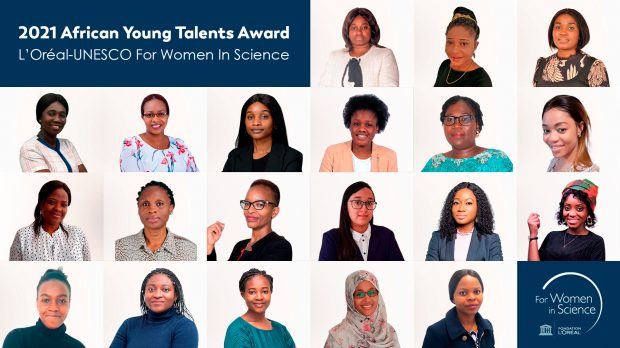
When women are ignored, researchers might miss differences in the way the female body responds to therapies, giving doctors little guidance about how to prescribe drugs for each gender.
Building a legacy
Palt sees things changing when critical mass is reached. If you include 30% women, the culture changes. She shares a comment from one of the scientists from the Young Talent Awards two years ago.
She said to me, “I can never thank you and UNESCO enough, for what you did, because you changed the way the world looked at me.”
The Young Talents 2021
The For Women in Science 20 Young Talents 2021 are joining a community of 3 900 female researchers at PhD and postdoctoral levels who have been supported and honored in over 110 countries by the For Women in Science program since its inception in 1998.
Thanks to these regional awards, young women researchers receive financial support to encourage them to pursue their research projects (endowments of €10 000 for PhD students and €15 000 for postdoctoral students). They benefit from training (management, negotiation, public speaking) aimed at providing them with a means to break the glass ceiling, as well as press and digital support through a visibility campaign to shed light on their profiles and inspire future generations of women researchers.
A COVID dilemma
While organizing an event such as this is a huge undertaking, especially in the midst of COVID-19, Palt reveals that they made the decision to go ahead for many reasons. One important consideration was gender inequality, especially during the pandemic. Many more girls are dropping out of school and many women face a mental and emotional backlash brought on by the pandemic.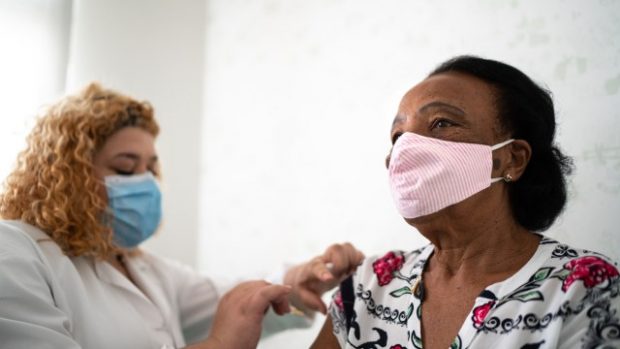
“Our research shows that women scientists have published less during the COVID pandemic, because they have had to take on additional responsibilities at home and this has impacted on their work output.”
The decision to host the event in Rwanda was based on the country’s excellent track record of managing the virus. In addition, Kigali has rigorous safety standards, and high quality and regularity of testing in place.
“Celebrating the women and making them visible is one of the ways that we can fight the gender inequalities worsened by COVID-19. Yes, COVID exists, but gender equality will be what helps society to progress.”
Navigating the workplace
The laureates have excellent scientific skills, and that’s the reason why they have been selected by a jury. This selection process is very strict. However, what they miss, like most women when they start their careers, is soft skills.
“One of the urban myths about women’s rights and equality is that, when you’re competent, you will succeed in your career, because you’re good, and we know that it’s not that easy.”
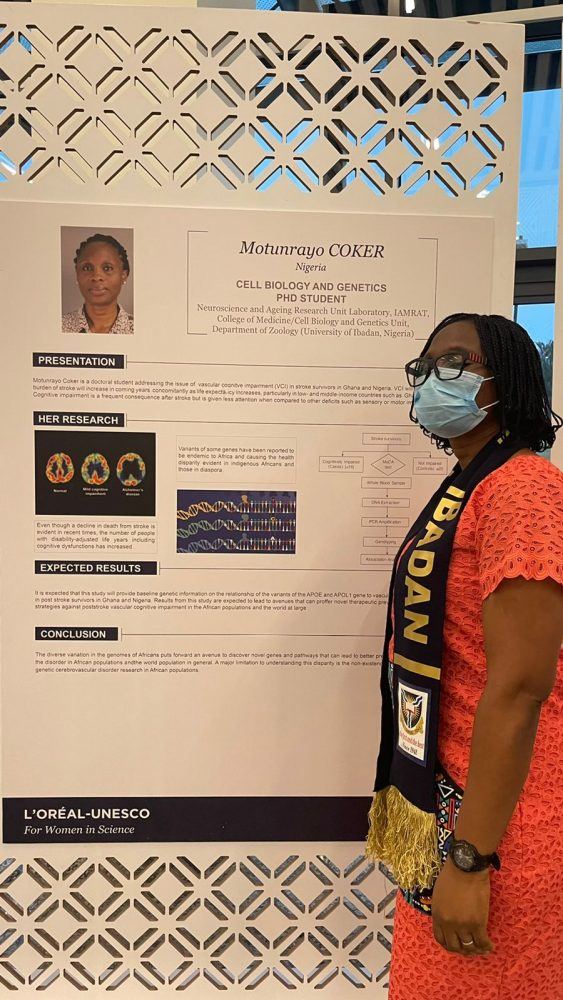
Laureate Motunrayo Coker from Nigeria, is a Cell Biology and Genetics PhD student.
Finding Women in Science
According to Palt, you need additional skills. “You need to know how to negotiate, to be able to manage, to communicate, to put yourself out there, and to know yourself better, in order to plan your career.”
The scientists on the For Women in Science Awards program also receive advice on how to manage sexual harassment in the workplace. They undergo media training, which teaches them how to communicate their scientific research in layman’s terms, so more people can understand it.
Setting a high bar
The Jury of the L’Oréal-UNESCO For Women in Science Sub-Saharan Africa Young Talents Awards 2021, chaired by Prof Aggrey Ambali, Director of Technical Cooperation and Program Financing at the African Union Development Agency (AUDA-NEPAD), selected 20 Young Talents from nearly 440 applications. For the first time since the inception of the Awards, the final list of awardees includes young talents from Eswatini (formerly Swaziland) and Gabon.
“African women scientists are a critical asset for the development of the continent. Driven by their commitment, they stand out for their excellence in fields such as chemistry, virology, biology, neurology and nuclear physics. Through their research, they make an important contribution to improving the lives of millions of people throughout Africa and the world.”
Paying it forward
While there is much transformation in its business model, L’Oréal acknowledges that it still has a role to play in solving some of the world’s challenges. In addition to the Fondation L’Oréal, there is also the Charitable Endowment Fund, which supports community organizations that empower women, and impact investment funds for biodiversity regeneration.
Conclusion
“What would be great is if women all define what a good life is for themselves,” says Palt, adding that many of the problems that we have as women are related to the fact that we have taken on the responsibility to solve everyone’s problems.
“Women need to believe in themselves , not just in the world of science, but across all aspects of business life.” She says sadly many strong, successful, independently minded, competent women are often labelled by men, as pushy, domineering or even condescending. And of course… these women are also very unpopular – according to these men. This name calling has an inescapably gendered aspect to it. It usually occurs when a woman does something that does not please the men around her.
She concludes: “We must not let these words define or disable our self-worth. Every woman must learn what is her issue and what is someone else’s issue. It’s their problem, let them deal with it. Women must not shy away from their invaluable contribution to society, business and the world at large.”
References
Published in Nature: Inequality in Medicine.Published: by: Anna Nowogrodzki
Women in Science: https://www.forwomeninscience.com/
UNESCO: Science and a sustainable future: https://en.unesco.org/science-sustainable-future/women-in-science
Harvard Business Review:When Gender Diversity Makes Firms More Productive by Stephen Turban, Dan Wu, Letian (LT) Zhang
Are women publishing less during the pandemic? Early analyses suggest that female academics are posting fewer preprints and starting fewer research projects than their male peers. Giuliana Viglione https://www.nature.com/articles/d41586-020-01294-9
About Alexandra Palt
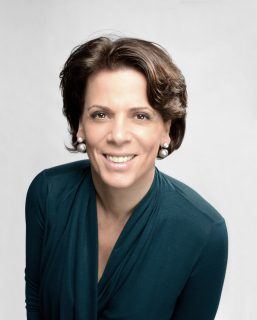
Alexandra Palt
Alexandra Palt is a lawyer by training, specialising in human rights. She began her career at a legal firm, before moving to Amnesty International in Germany.
In 2003, she joined IMS-Entreprendre pour la Cité, a business-driven membership organization working on CSR. She focused on diversity management, community involvement and urban regeneration. In 2006, Palt joined HALDE (French Equal Opportunities and Anti-Discrimination Commission) as Director, Promotion of Equality. In 2008, she founded Fabric of Society, a strategic consultancy firm specializing in change management and sustainability, advising large companies on their CSR policies.
Chief Sustainability Officer
She joined L’Oréal as Chief Sustainability Officer in February 2012, and in 2013, launched L’Oréal’s first sustainability program, which set commitments for 2020, addressing the company’s impact across its value chain.
In 2014, L’Oréal released its “Zero Deforestation” policy, driven by Palt, whose ambition has been widely recognized, particularly by NGOs.
Shortly before COP21 in 2015, she finalized L’Oréal’s new commitment: to become a “carbon-balanced” company by 2020.
The same year, Jean-Paul Agon decided that the CSR & Sustainable Development Department would report directly to him, demonstrating the strategic importance of the sustainability program for all functions, brands, divisions and countries.
Since 2016, criteria related to the progress of the group’s sustainability commitment have been factored into the bonuses of all L’Oréal brand and country managers. This has made the environmental and social performance of L’Oréal a new performance indicator.
L’Oréal Foundation
In September 2017, Palt was appointed Chief Corporate Responsibility Officer, becoming Executive Vice-President of the L’Oréal Foundation, in addition to her role as head of the CSR & Sustainability Department. In September 2019, she became a member of the Group’s Executive Committee.
This aims to ensure greater strategic coherence between the activities that L’Oréal is leading, on the one hand, to integrate sustainable development throughout its value chain and, on the other hand, its various philanthropic contributions.
In June 2020, the Group launched “L’Oréal for the Future”, its new sustainability strategy for 2030, which embodies the two complementary dimensions of what corporate responsibility means to L’Oréal: transforming the company towards an increasingly sustainable business model, and contributing to solving some of the environmental and social challenges facing the world.


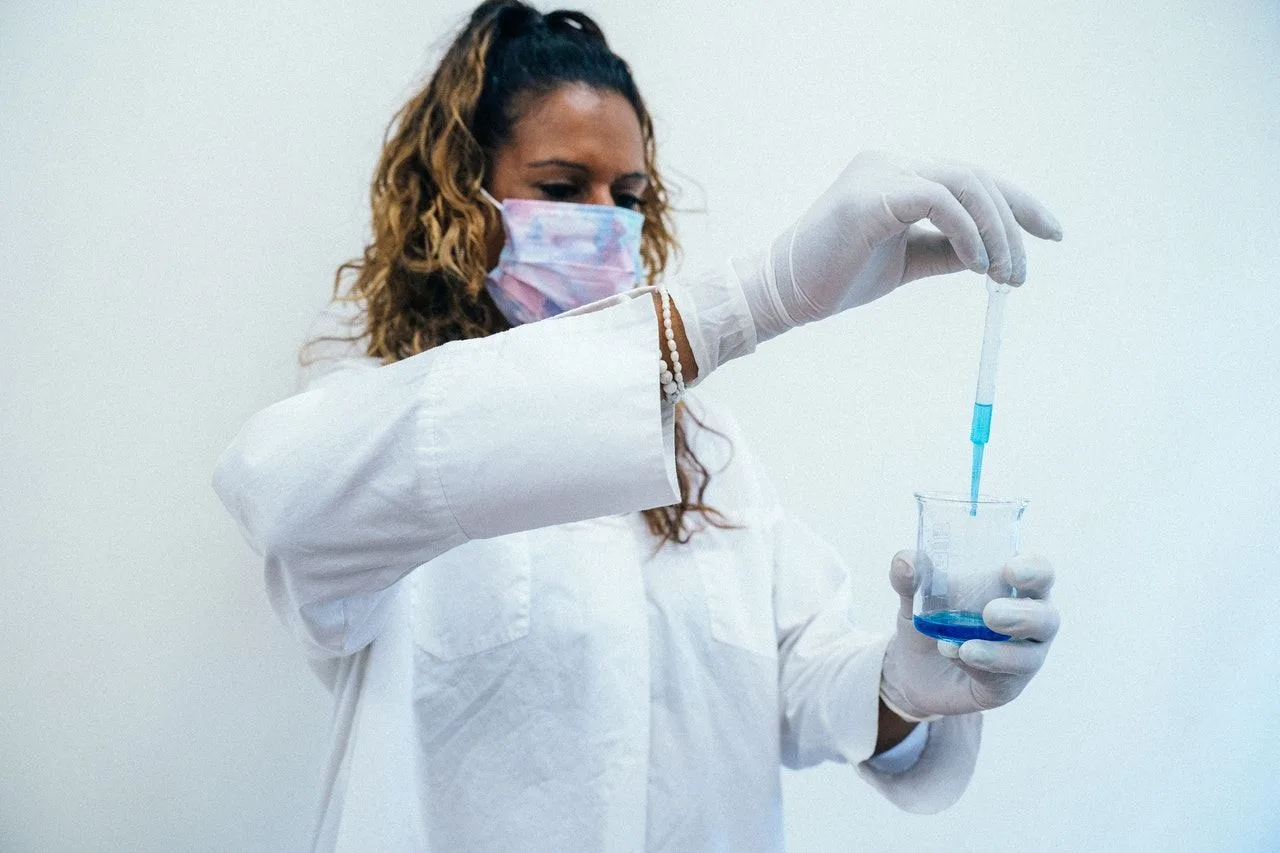
![women [longevity live]](https://longevitylive.com/wp-content/uploads/2020/01/photo-of-women-walking-down-the-street-1116984-100x100.jpg)










